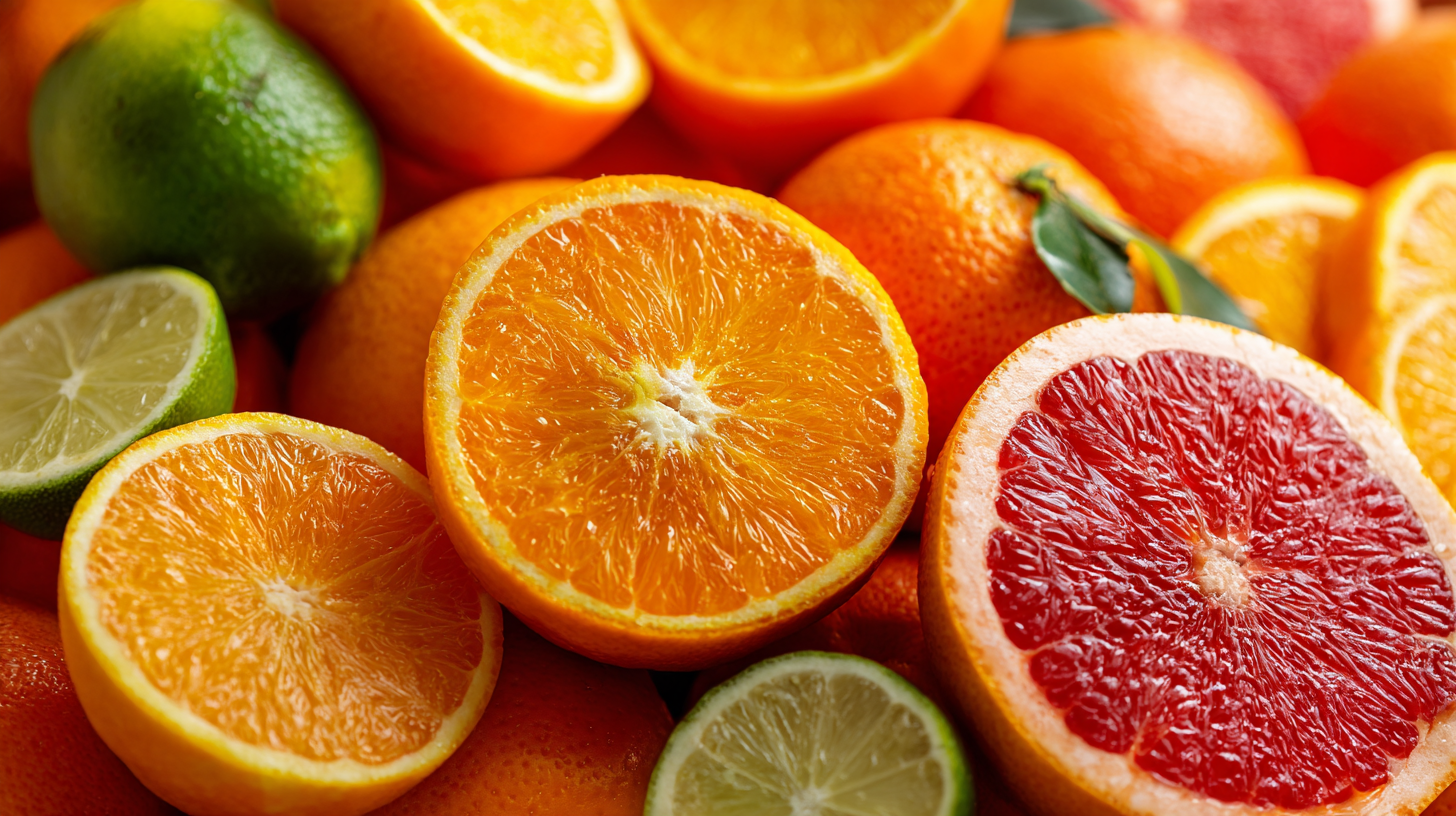
News
Revolutionizing Nutrition Trends in 2025 How Best Vitamin C Coated Products Enhance Global Supply Chain Efficiency
In 2025, the landscape of nutrition is poised for transformative changes, particularly with the advent of Vitamin C Coated products. According to a report by the Global Nutritional Supplements Market Analysis, the industry is expected to reach a valuation of $300 billion by 2025, driven by heightened consumer awareness of health benefits associated with functional ingredients.
 Vitamin C, renowned for its antioxidant properties, not only boosts the efficacy of supplements but also plays a crucial role in enhancing the global supply chain efficiency by improving product stability and shelf life. With a rise in demand for natural and effective nutritional solutions, Vitamin C Coated products could become the cornerstone of innovative health strategies, ensuring that consumers receive maximum benefit from their dietary choices while supporting sustainable practices in production and distribution.
This blog will delve into the trends surrounding this revolutionary approach and its implications for the future of nutrition.
Vitamin C, renowned for its antioxidant properties, not only boosts the efficacy of supplements but also plays a crucial role in enhancing the global supply chain efficiency by improving product stability and shelf life. With a rise in demand for natural and effective nutritional solutions, Vitamin C Coated products could become the cornerstone of innovative health strategies, ensuring that consumers receive maximum benefit from their dietary choices while supporting sustainable practices in production and distribution.
This blog will delve into the trends surrounding this revolutionary approach and its implications for the future of nutrition.
Emerging Trends in Vitamin C Coated Products for 2025
The landscape of nutritional products is rapidly evolving, with Vitamin C coated products taking center stage as a key trend for 2025. These innovative formulations not only enhance the efficacy of the vitamin but also improve its stability and bioavailability. By encapsulating Vitamin C, manufacturers can protect it from environmental factors that may degrade its potency, ensuring that consumers receive the full benefits of this essential nutrient. As health consciousness continues to grow, these products are poised to become a preferred choice for individuals seeking effective nutritional support.
Moreover, the rise of Vitamin C coated products is expected to significantly influence global supply chain efficiency. These products can be crafted to extend shelf life, reducing waste during transportation and storage. This efficiency not only meets consumer demands for fresh and potent supplements but also aligns with sustainability goals by minimizing losses and resource use. As brands embrace these emerging trends, we may witness a shift in production practices that prioritize both nutrition and environmental responsibility, ultimately shaping a more sustainable future for the health industry.
Factors to Consider When Choosing Quality Manufacturers for Nutritional Supplements
When selecting quality manufacturers for nutritional supplements, particularly those utilizing advanced vitamin C coatings, several critical factors come into play. First and foremost, it's essential to assess the manufacturer’s compliance with industry regulations and certifications. Look for certificates such as GMP (Good Manufacturing Practices) and NSF International that indicate a commitment to quality and safety. These certifications not only guarantee that production processes are up to standard but also ensure that the products are effective and safe for consumers.
Another vital consideration is the transparency of the sourcing and formulation process. Quality manufacturers openly disclose their ingredient sources, emphasizing the use of high-quality raw materials. This transparency helps build trust with consumers who are increasingly demanding accountability in their nutritional products. Additionally, it’s beneficial to evaluate a manufacturer’s research and development capabilities. Companies investing in innovation are more likely to enhance the effectiveness of their vitamin C coated supplements, improving overall customer satisfaction and contributing positively to the global supply chain. By focusing on these aspects, businesses can make informed decisions that align with the evolving nutrition trends of 2025 and beyond.
Innovative Solutions to Enhance Supply Chain Efficiency in the Vitamin Sector
The vitamin sector is experiencing a significant evolution, particularly in how supply chain efficiency can be enhanced through innovative solutions. As global demand for vitamin C rises, companies are integrating cutting-edge technologies to streamline their processes and reduce waste. From AI-driven manufacturing techniques to advancements in cold chain logistics, the industry is finding new ways to ensure that products remain fresh and effective while minimizing their carbon footprint. These technological interventions not only enhance productivity but also facilitate a more sustainable approach to nutrition distribution.
Moreover, advancements in ingredient sourcing, such as the valorization of byproducts from related industries, are pivotal to creating a zero-waste ecosystem in the vitamin market. Leveraging innovative strategies, producers can transform waste materials into valuable resources, thus creating a circular economy that benefits both the environment and the economy. As supply chains evolve, the focus on sustainability and efficiency will reshape how vitamin C products are manufactured and delivered, ultimately revolutionizing the nutritional landscape by 2025.

Impact of Vitamin C Coating on Product Shelf Life and Quality
As the global demand for shelf-stable products continues to rise, the innovative use of Vitamin C coating in food and pharmaceutical sectors is gaining remarkable attention. Recent studies indicate that products treated with Vitamin C coatings can extend shelf life by up to 20-30%, significantly reducing spoilage and waste. This enhancement is particularly crucial as the global food waste was estimated to reach 1.3 billion tons in 2021, according to the Food and Agriculture Organization (FAO). By integrating Vitamin C coatings, manufacturers not only bolster the longevity of their products but also contribute to sustainability efforts.
Moreover, Vitamin C’s natural antioxidant properties play a vital role in maintaining product quality. Research conducted by the Institute of Food Technologists (IFT) highlights that Vitamin C-coated products retain their nutritional value better than untreated items, ensuring that consumers receive optimum benefits. This improvement in quality can enhance consumer trust and brand loyalty, vital in today’s competitive market. As companies continue to innovate, incorporating Vitamin C coating into their supply chains will not only improve efficiency but also meet the growing consumer demand for healthier, longer-lasting products.
Strategies for Collaborating with Manufacturers to Improve Nutritional Product Offerings
In the evolving landscape of nutritional products, collaboration with manufacturers is pivotal for enhancing offerings and improving global supply chain efficiency. By establishing solid partnerships, companies can leverage shared resources and expertise, which allows for the development of innovative vitamin C coated products that meet consumer demand for quality and efficacy. Engaging in open communication and feedback loops not only streamlines production processes but also ensures that the products align with current health trends, addressing the needs of an increasingly health-conscious market.

Furthermore, strategic collaborations can facilitate access to cutting-edge technologies and sustainable practices. Manufacturers can implement advanced coating techniques that enhance the bioavailability of vitamin C, thereby increasing the product's nutritional value. Additionally, joint ventures can lead to shared marketing efforts, improving brand visibility in a competitive market. By working closely with manufacturers, companies can create a robust supply chain that not only enhances product quality but also boosts operational efficiencies, allowing them to respond swiftly to changing consumer preferences and trends in 2025 and beyond.





